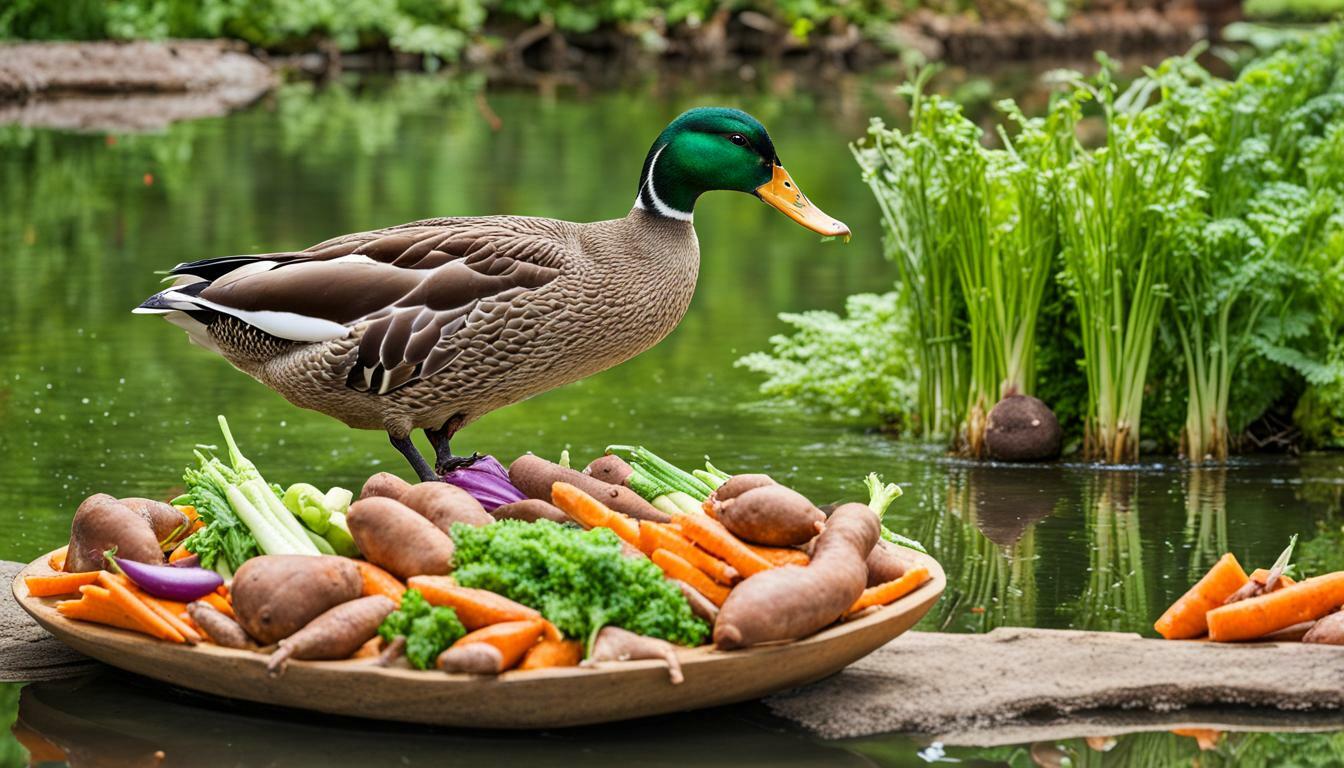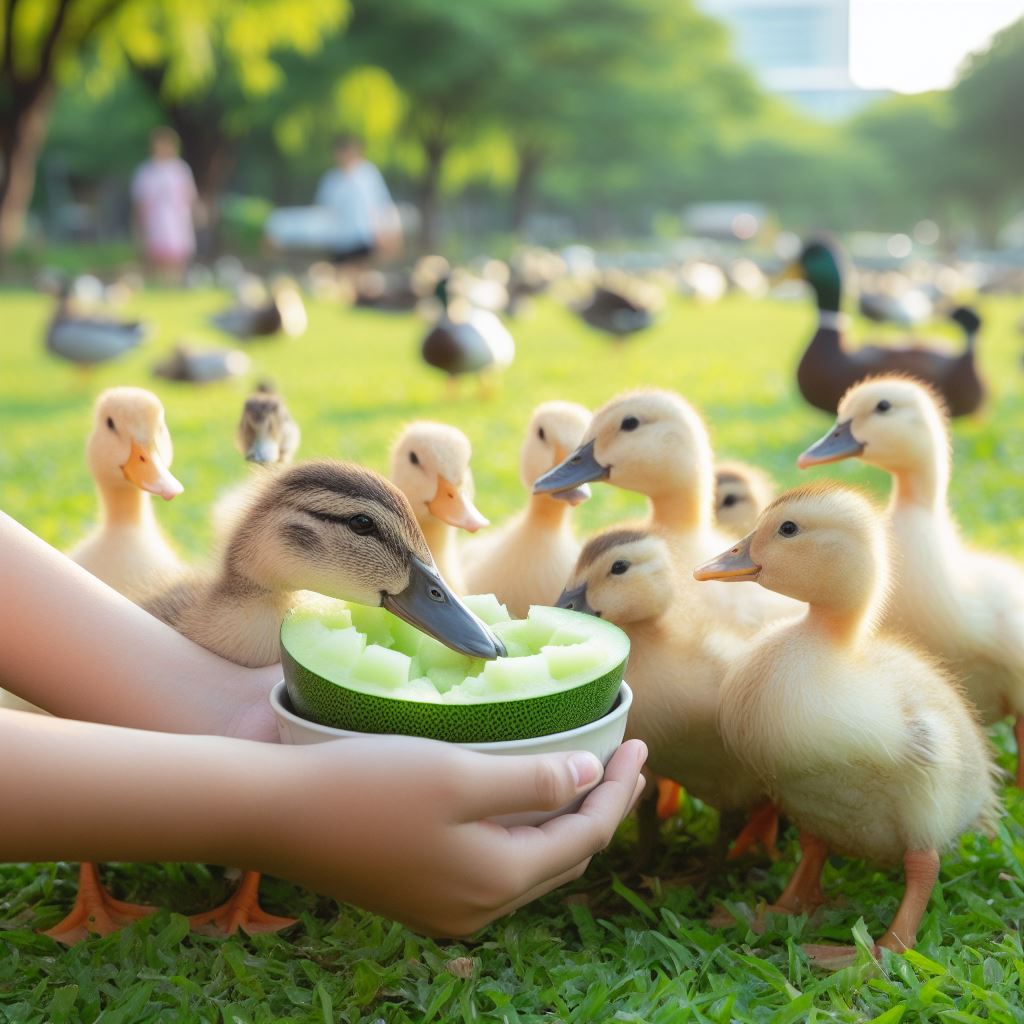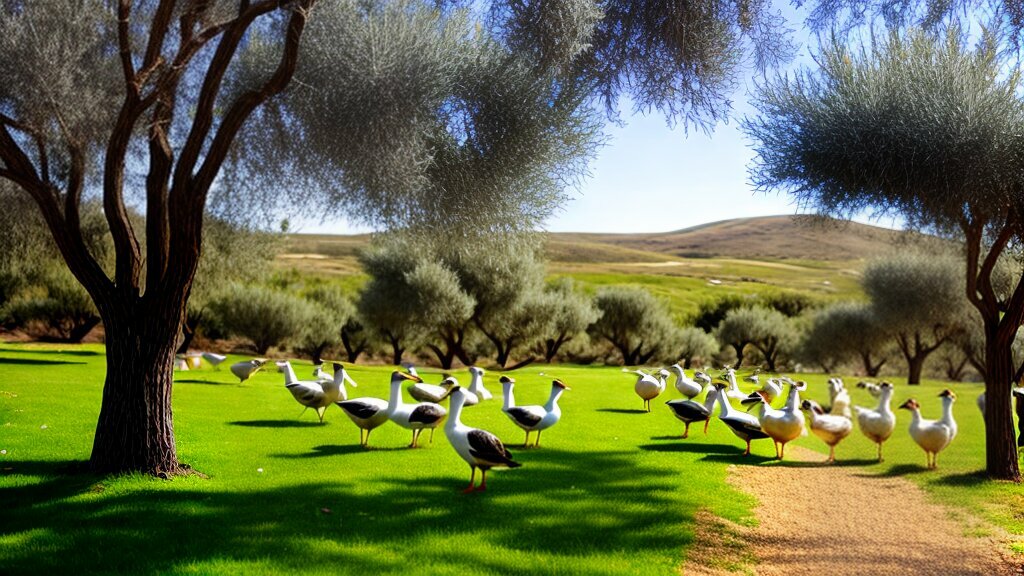Can Ducks Have Cabbage?
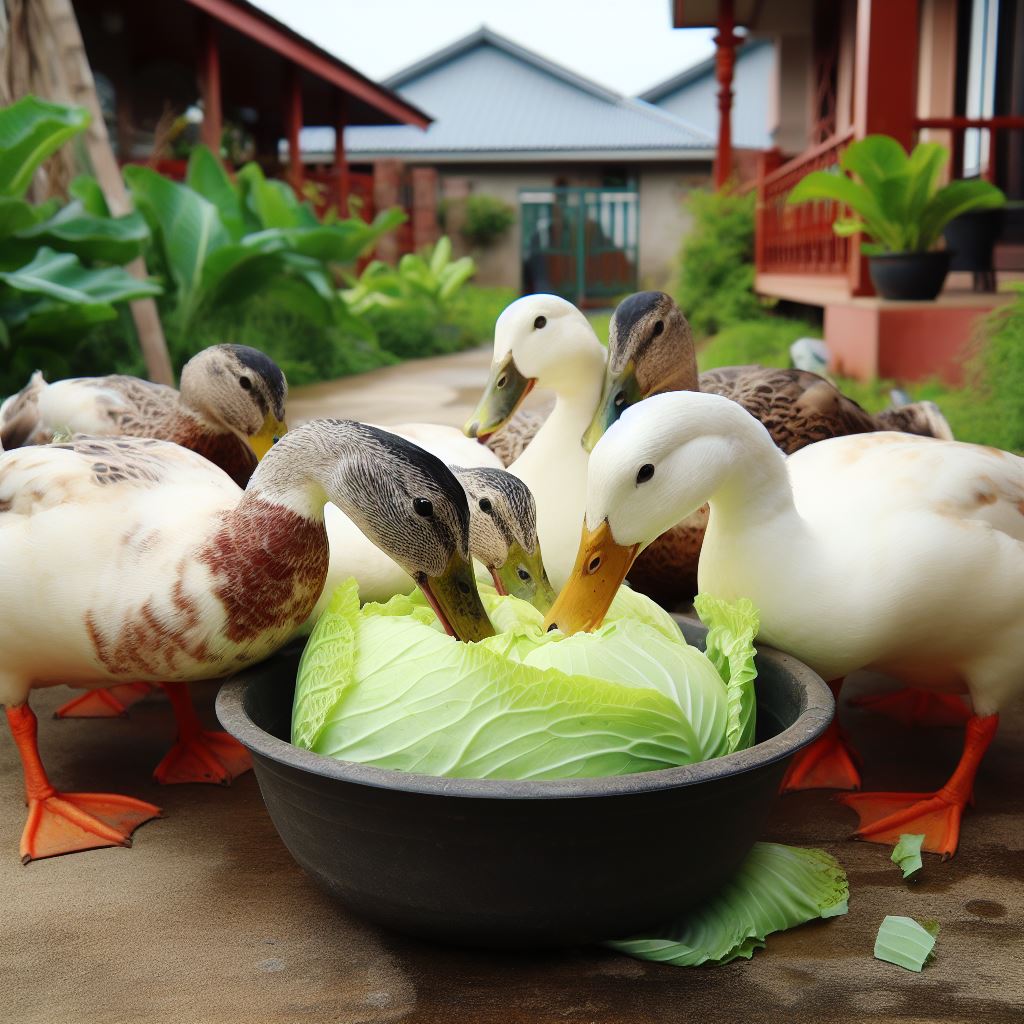
Table of content:
Cabbage is a common vegetable that is affordable, nutritious, and enjoyed by humans in salads and stir fries. But what about our feathered friends – can ducks have cabbage too? As duck owners and caretakers, it’s our responsibility to provide our ducks with a balanced diet to keep them healthy.
In this article, we’ll explore whether cabbage should be part of that diet.
Before looking specifically at cabbage, let’s understand what ducks need to eat in general to stay healthy.
Ducks require the following core nutrients:
- Protein for muscle growth and development
- Calcium for bone health and eggshell strength
- Fiber for healthy digestion
- Vitamins and minerals for bodily function and metabolism
They also need access to fresh, clean water at all times to thrive. Without proper nutrition and hydration, ducks can face issues like:
- Stunted growth
- Lower egg production
- Increased risk of illness
- Feather abnormalities
- Shorter lifespans
So the key for caretakers is identifying ingredients that provide balanced and complete nutrition.
Commercial Duck Feed
Many duck owners choose commercial duck feeds as their dietary foundation. These pelleted or crumbled feeds are specially formulated to meet ducks’ nutritional requirements.
Benefits of commercial feeds include:
- Complete, balanced diet
- Convenient to use
- Supports healthy growth
Commercial duck feeds may incorporate ingredients like:
- Grains: corn, wheat, barley
- Protein sources: soybean meal, fish meal
- Fruits and veggies: alfalfa, beet pulp
- Vitamin and mineral packs specific to ducks
Downsides can include:
- Higher cost
- Less natural than whole foods
So while commercial feeds offer a solid nutritional base, supplementing with treats can provide added benefits.
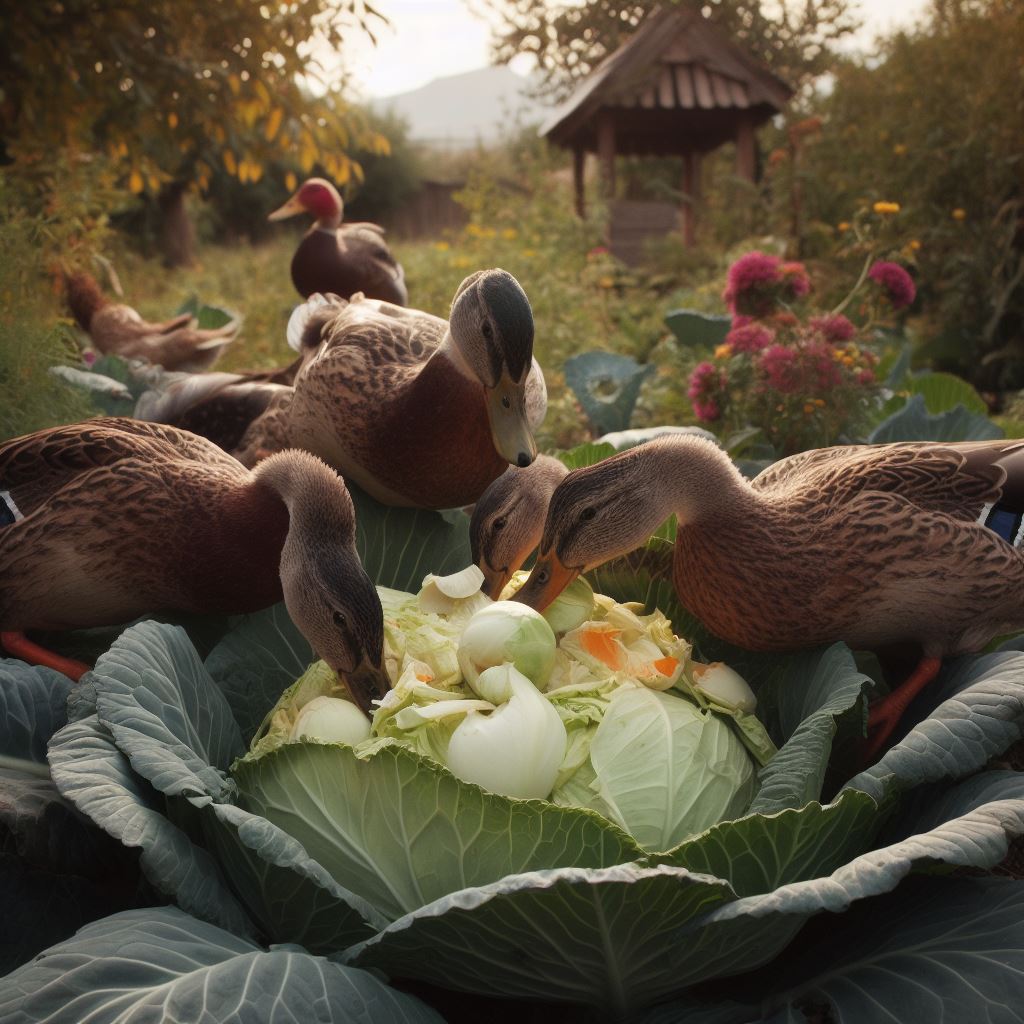 Potential Benefits of Cabbage for Ducks
Potential Benefits of Cabbage for Ducks
Now that we have covered the fundamentals of duck nutrition, we can analyze specific pros and cons of cabbage for duck health. Let’s start with some potential benefits of cabbage:
1. Rich in Vitamins and Minerals
Cabbage contains a host of important micronutrients:
- Vitamin C: Immune support and collagen synthesis
- Vitamin K: Bone and feather health
- Folate: DNA/RNA processes
- Potassium: Muscle/nerve function
- Manganese: Bone/enzyme health
- Fiber and antioxidants for digestion and cellular function
These can complement nutrients supplied in commercial feed.
2. Supports Digestive Health
The fiber and water content in cabbage may aid digestion in ducks by:
- Promoting digestion through healthy gut bacteria
- Supporting regularity
- Hydrating digestive tract
This helps ducks fully utilize nutrients from other foods.
3. Low Fat and Calorie
With only 33 calories per cup, cabbage is low fat and calorie. This makes it suitable for ducks requiring weight control without compromising vitamins, minerals, and antioxidants.
4. Encourages Natural Foraging
Cabbage offers appealing texture and crunch ducks often forage naturally in the wild. It satisfies instinctual needs in domestic ducks with limited foraging opportunities.
Risks of Feeding Too Much Cabbage
- Goiter (iodine deficiency): Contains goitrogens blocking iodine absorption, causing thyroid issues over time
While cabbage has some excellent properties for duck health, there are some risks with overfeeding. These include:
- Nutritional imbalances: Too much cabbage dilutes complete nutrition from duck feed
- Gas and bloating: Excess fermentable fiber causes digestive upset
- Goiter (iodine deficiency): Contains goitrogens blocking iodine absorption, causing thyroid issues over time
- Poor growth in ducklings: Growing birds need sufficient protein, exact minerals
Plus ducks can have strong preferences for treats, limiting their commercial feed intake. For these reasons, moderation is key.
Other Vegetable Treats for Ducks
In addition to cabbage in conservative amounts, there are many other fruits, veggies, leafy greens and plants ducks can enjoy as part of a balanced diet:
Leafy Greens
| Kale | Lettuce | Spinach |
Vegetables
| Carrots | Beets | Peas |
| Sweet Potatoes | Yams | Squash |
Fruits
| Melons | Berries | Apples |
| Tomatoes | Bananas | Grapes |
Special Plants
| Water Plants | Duckweed |
| Fern Leaves | Seaweed |
This variety allows ducks to obtain a spectrum of nutrients while satisfying their natural foraging instincts. Rotate different treats to maximize benefits.
Foods Ducks Should Avoid
Just as important as healthy treatment options is knowing what NOT to feed ducks. Some foods to avoid giving ducks include:
Human Foods
- Chocolate
- Coffee
- Raw Beans
- Avocados
- Citrus fruits
- Garlic/Onions
- Potato skins
These contain toxins unsafe for ducks.
Nutrient Deficient
- White bread
- Romaine lettuce
- Iceberg lettuce
These offer calories over nutrition.
Choking Hazards
- Whole nuts
- Hard seeds
- Whole grains
- Corn kernels
Ducks gulp treats rapidly.
Eliminating these foods from ducks’ diets supports their health and wellbeing.
Feeding Cabbage to Ducks Safely
Given the benefits and risks, here is an optimal approach to incorporating cabbage safely:
- Always offer commercial feed, changed daily
- Limit cabbage quantity to 5-10% daily calories
- Chop cabbage heads into 1/2” pieces to limit choking
- Mix cabbage pieces into feed to encourage balanced eating
- Feed larger ducks first, then ducklings if quantities remain
- Store cabbage in fridge up to 5 days before feeding; discard discolored leaves
- Wash cabbage thoroughly to remove dirt; avoid soaking leaves
- Do not leave cabbage out over 1 hour before feeding to avoid spoilage
- Observe stool consistency; reduce cabbage if looseness or odor occurs
- Adjust cabbage amounts based on ducks’ health, growth needs
Following these tips allows ducks to gain benefits of cabbage while avoiding potential downsides. Monitor ducks’ consumption, health, feathering and activity levels. Reduce cabbage and consult a veterinarian if any concerns arise.
Conclusion: The Verdict on Ducks and Cabbage
In conclusion, cabbage offers some excellent nutritional properties to benefit duck health – in moderation. It provides beneficial vitamins, minerals, and natural foraging opportunities. However, overfeeding cabbage can negatively impact complete nutrition, digestion, and duck growth.
By following the best practices outlined above for amounts and preparation, cabbage can safely supplement commercial duck feeds. Combined with other leafy greens, vegetables, and fruit options on a rotating schedule, cabbage variety nurtures ducks’ minds and bodies for optimal health.
So the final verdict is: Yes, ducks can and should enjoy cabbage! Both ducks and their owners can appreciate this affordable, nutritious vegetable when properly integrated alongside commercial feeds and animal-appropriate produce. A balanced diet allows these unique, active birds to thrive.
Welcome. I’m Adreena Shanum, the proud owner of this website, and I am incredibly passionate about animals, especially poultry. I founded adreenapets.com as a labor of love, stemming from my desire to share my knowledge and experiences with poultry enthusiasts worldwide.


